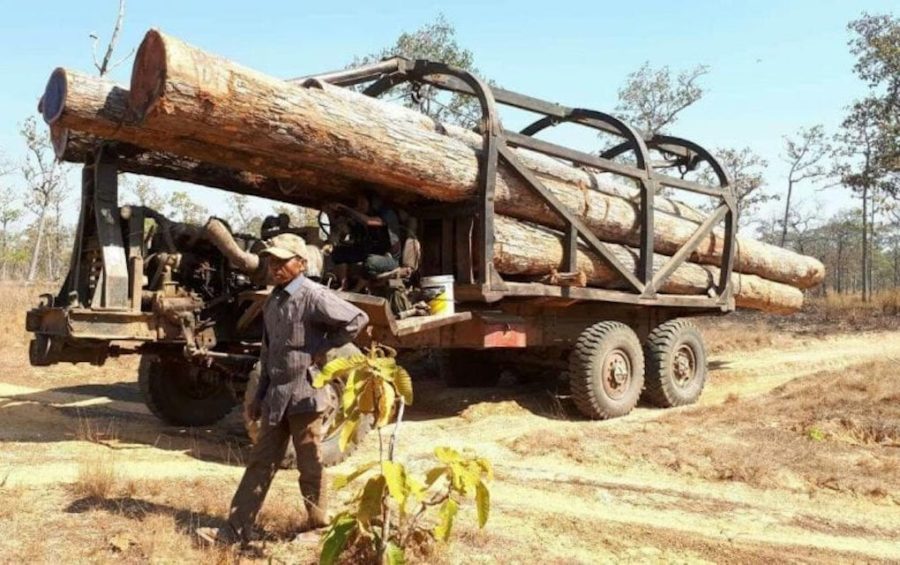More than 40 environmental activists said in an open letter that the government has yet to fully commit to forest conservation — despite a recent crackdown on forestry crimes — with some advocates claiming corruption was behind deforestation.
Activist Heng Sros, one of the letter’s 43 signatories, said on Monday that forestry advocates had learned of at least 10 companies continuing to hold licenses that allowed them to transport timber, even though a government plan announced last month ordered all timber transport permits to be cancelled, and forestry offenders assets to be frozen.
Sros said if the government did not take their letter, which was released on Friday and calls on authorities to shut down timber mills and stop issuing transport permits, into consideration, then “it seems like the government is blocking and cracking down [on timber traders] just for a good look.”
“It is not about doing it for the benefit of the nation,” Sros added.
Another signatory, university student Sorm Taing Y, said he was concerned about the loss of Cambodia’s natural resources if no measures were taken soon to prevent crimes like illegal logging and timber trafficking.
“I want to ask the government to enforce the law properly and eliminate corruption because corruption is also a cause of deforestation,” said Taing Y, who added that he has participated in forestry crime investigations twice in Preah Vihear province.
Amid a timber trafficking crackdown declared in early July, at least nine people have been arrested, including three Mondulkiri provincial officials, oknha Soeng Sam Ol and two associates, and three Chinese workers from among five companies under investigation.
But the government’s campaign has not been sufficient in stopping forestry crimes, according to Saroan Chakrya, a student at the Royal University of Phnom Penh’s environmental management department, who has investigated deforestation in Prey Preah Roka National Park in Preah Vihear province and Prey Lang forest.
Chakrya, echoing Taing Y, said the government should eliminate alleged corruption, which allowed deforestation to continue.
Eng Hy, spokesman for the National Anti-Deforestation Committee, said the appeal from forestry activists and youth was just their opinion, and that his committee was working to prevent forestry crimes across the country.
He cited a discovery of 10 trucks on Sunday and Monday believed to be used by timber traffickers in Battambang province, according to a post on his Facebook page. The trucks were hidden in the forest under tarpaulin and brush.
“If there is an offense, it will be prosecuted. And if there is any, let them report it to related authorities in that area,” Hy said, referring to the activists.
“If it’s happening in any province, please let them report to [authorities in] that province. If that province does not act, the committee will take action,” he added.
Hy told VOD in July that the committee had confiscated 4,000 cubic meters of illegal timber in 2018, with 163 people arrested, of which 63 were sent to court. The others were fined and warned, he said.
Am Sam Ath, monitoring manager for the human rights organization Licadho, acknowledged a decline in forestry crimes following the committee’s campaign but said that the operations were superficial.
“I just see that even though it has gone down because of the government’s operation, the forestry crimes are still going on,” Sam Ath said.
(Translated and edited from the original article on VOD Khmer)













